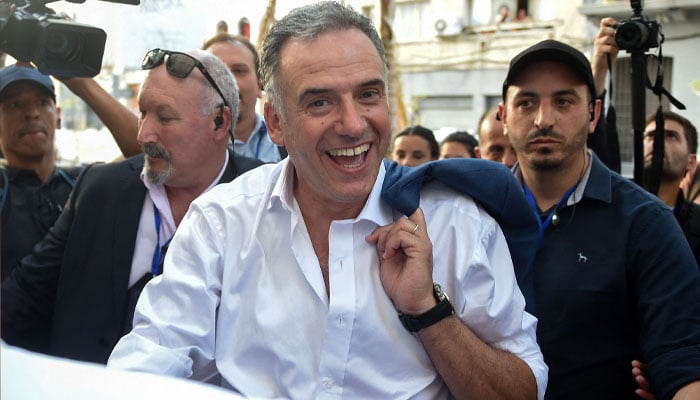
Leftist candidate Yamando Orci is expected to win Uruguay’s presidential elections, media reported Sunday, in voters’ criticism of five years of conservative rule.
Uruguayan citizens went to the polls in the second round of voting in what became a close race between Orci, of the Frente Amplio (Broad Front) coalition, and Alvaro Delgado of the National Party, a member of the Center Party to which outgoing President Luis Lacalle Pou belongs. The correct Republican coalition.
Orci received 49 percent of the votes compared to 46.6 percent for Delgado, according to a poll conducted by the Equipos Consultants Foundation and conducted by the Canal 10 television station, while the leftist politician is expected to receive 49.5 percent of the votes compared to 45.9 percent for his competitor in a poll conducted by the CIFRA Foundation. Channel 12.
Orci’s campaign was boosted by the support of Jose “Pepe” Mujica, a former gangster who was labeled “the poorest president in the world” due to his modest lifestyle during his presidency between 2010 and 2015.
Orci, seen as an alternative to Mujica, received 43.9 percent of the votes in the first round held on October 27, less than the 50 percent needed to avoid a runoff, but better than the 26.7 percent of votes cast. In favor of Delgado.
The two emerged at the top of a crowded list of 11 candidates seeking to succeed Lacalle Pou, who enjoys a high approval rating but is constitutionally prohibited from running for a second consecutive term.
On Sunday, opinion polls indicated little competition, with Orsi marginally ahead in declared voter intentions in the second-smallest country in South America.
Polling stations closed at 7:30 pm (2230 GMT).
A very different world
Mujica, who suffers from cancer and had to use a cane to enter the polling station to cast his vote, said on Sunday: “I have nothing to look forward to. My closest future is the cemetery, for reasons related to age.”
“But I am interested in your fate, you young people who, when you are my age, will live in a completely different world.”
A smiling Orsi cast his vote on Sunday in the rural Canelones region, amid applause from his supporters.
Delgado shook hands with polling station officials while casting his vote in Montevideo.
“If I win, tomorrow I intend to invite candidate Orci to come and have a mate,” Delgado said, referring to the traditional herbal infusion that Uruguayans frequently sip.
Other parties within the Republican coalition had thrown their support behind Delgado since the first round, which boosted his numbers.
Insecurity is a concern
An Orci victory would swing Uruguay leftward again after five years of center-right rule in the country of 3.4 million people.
The Broad Front coalition broke the decades-long conservative hold by winning the election in 2005 and serving as president for three consecutive terms.
It was voted down in 2020 against the backdrop of concerns about rising crime rates blamed on high taxes and increased cocaine smuggling through the port of Montevideo.
Pre-vote poll numbers showed that perceived insecurity remains the top concern for Uruguayans five years on.
The 72-year-old retiree who voted, Juan Antonio Stefan, said he just wanted the next government to guarantee “safety – to be able to go out into the street with peace of mind, as an old person, as a young person, as a child.”
Another voter, Aldo Sorrora, a 60-year-old vine farmer, said he expected anyone elected president to do “the best he can for the people,” adding: “You can’t ask for much more than that in these times.” “Difficult.”
Voting is compulsory in Uruguay, one of the most stable democracies in Latin America, with relatively high per capita incomes and low levels of poverty.
During the height of leftist rule, Uruguay legalized abortion and same-sex marriage, became the first country in Latin America to ban smoking in public places and the first country in the world, in 2013, to allow recreational cannabis use.
